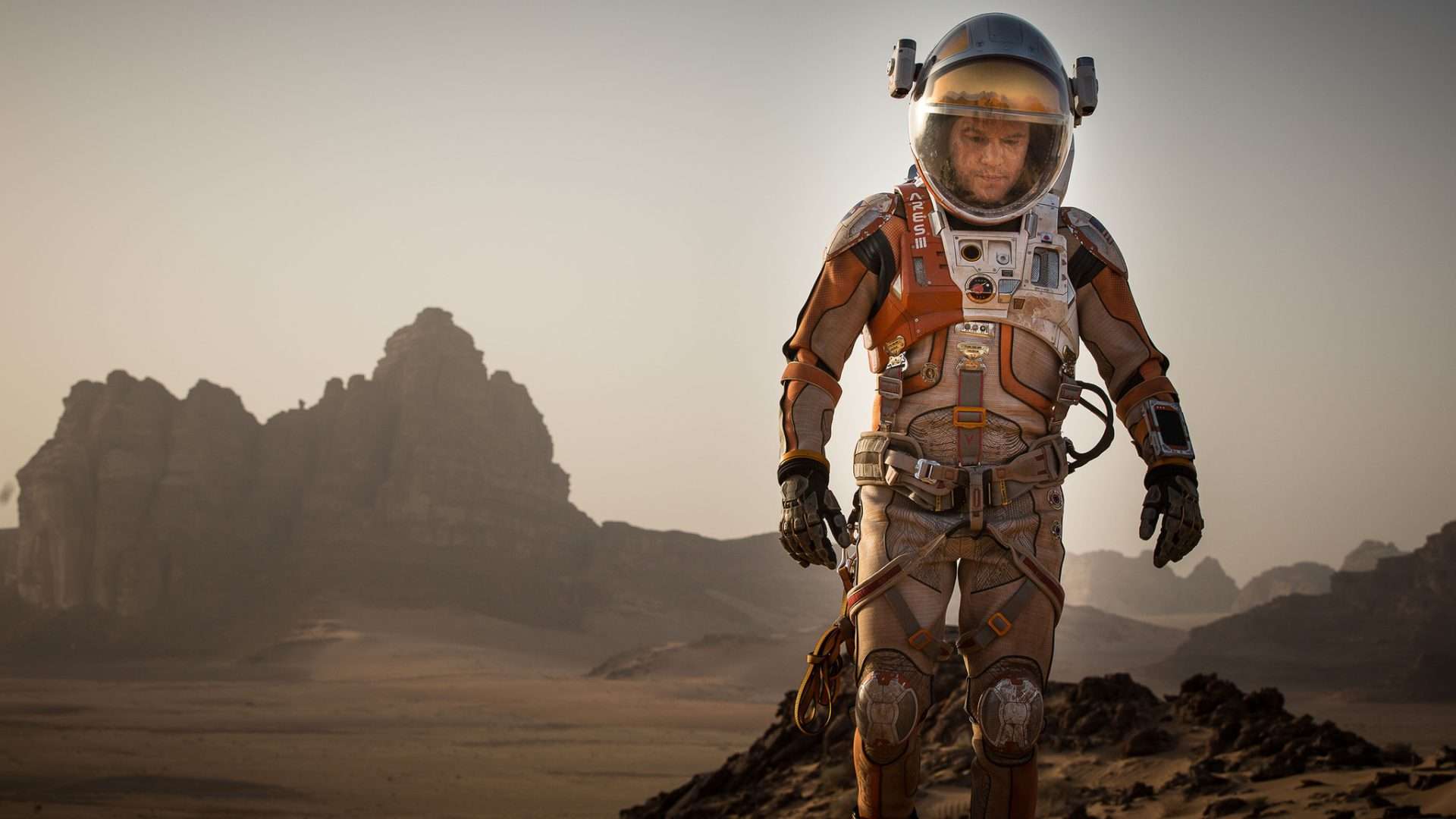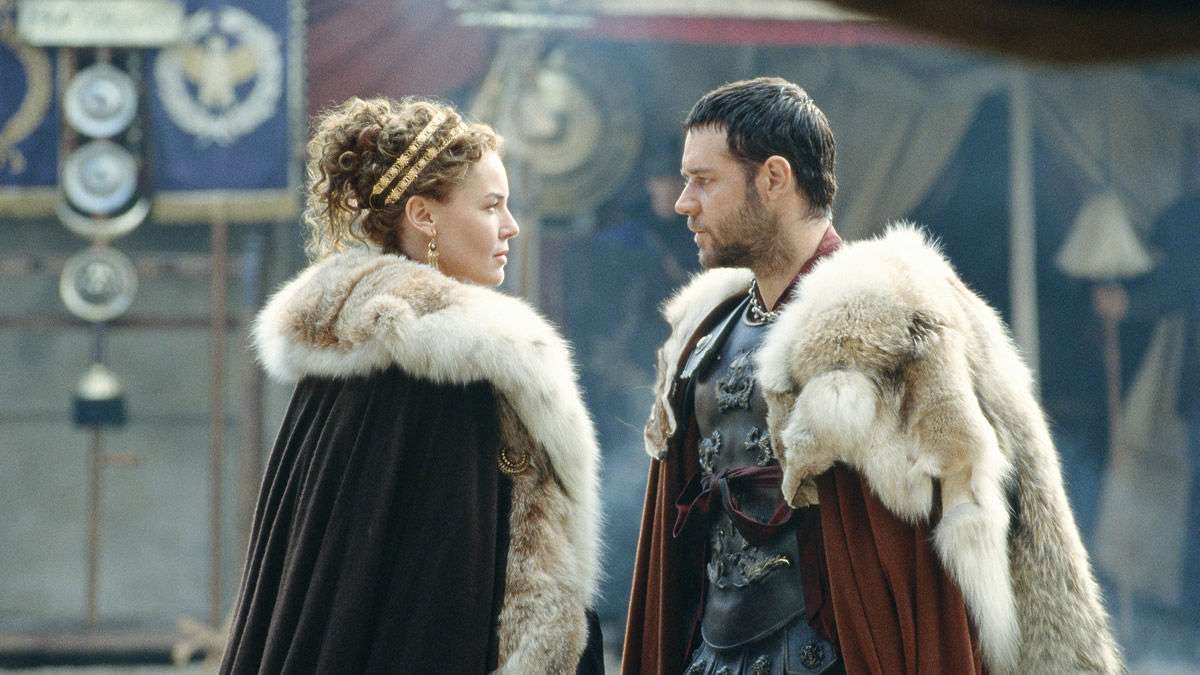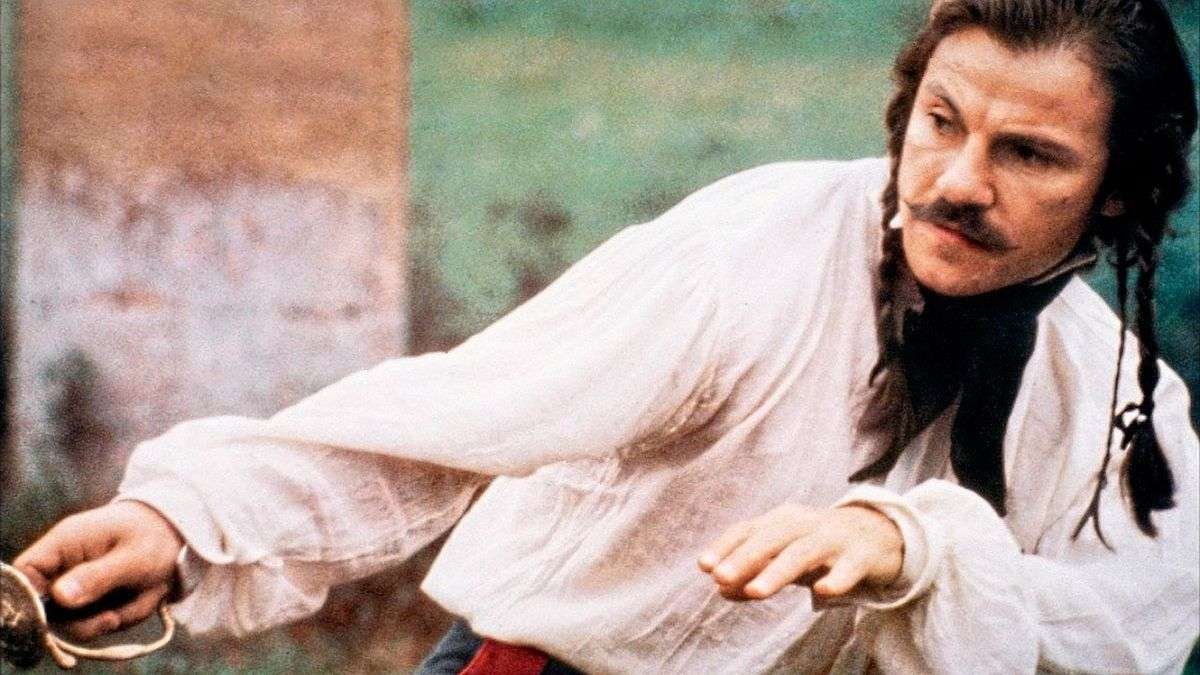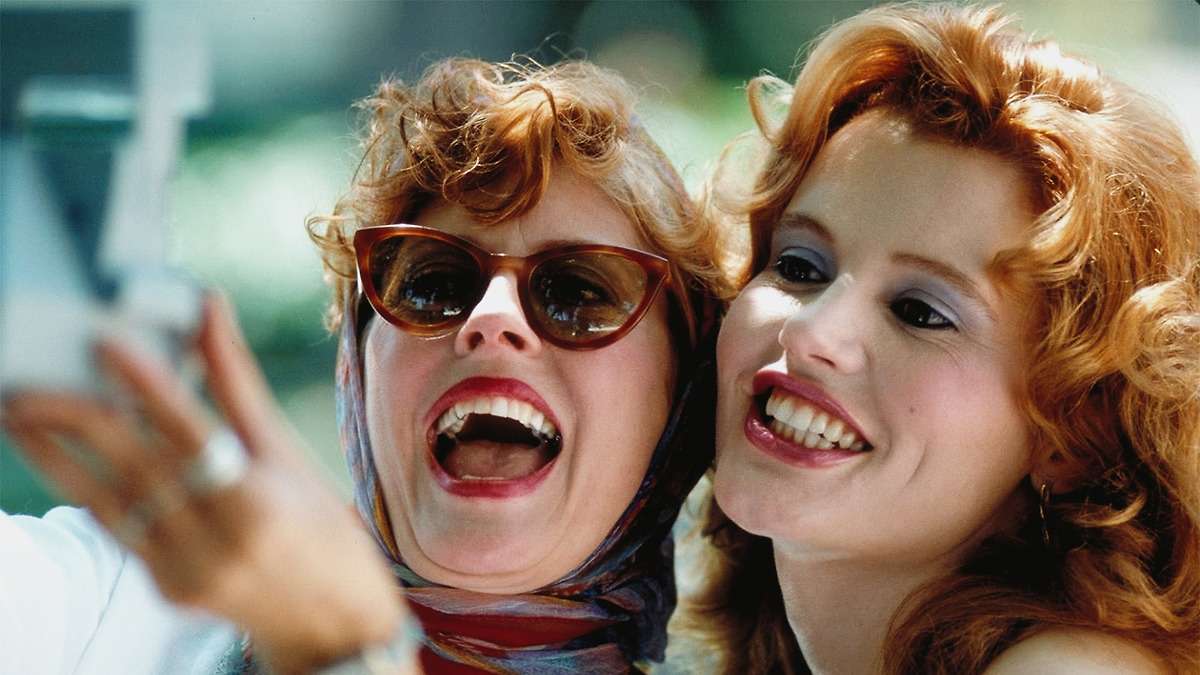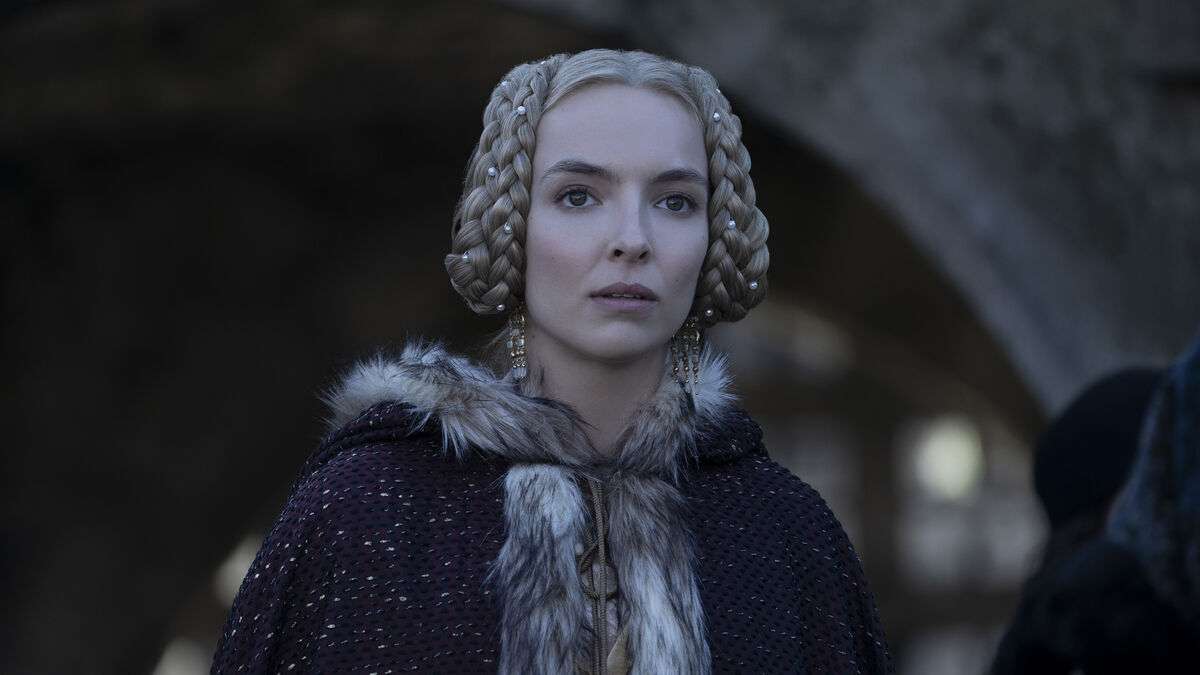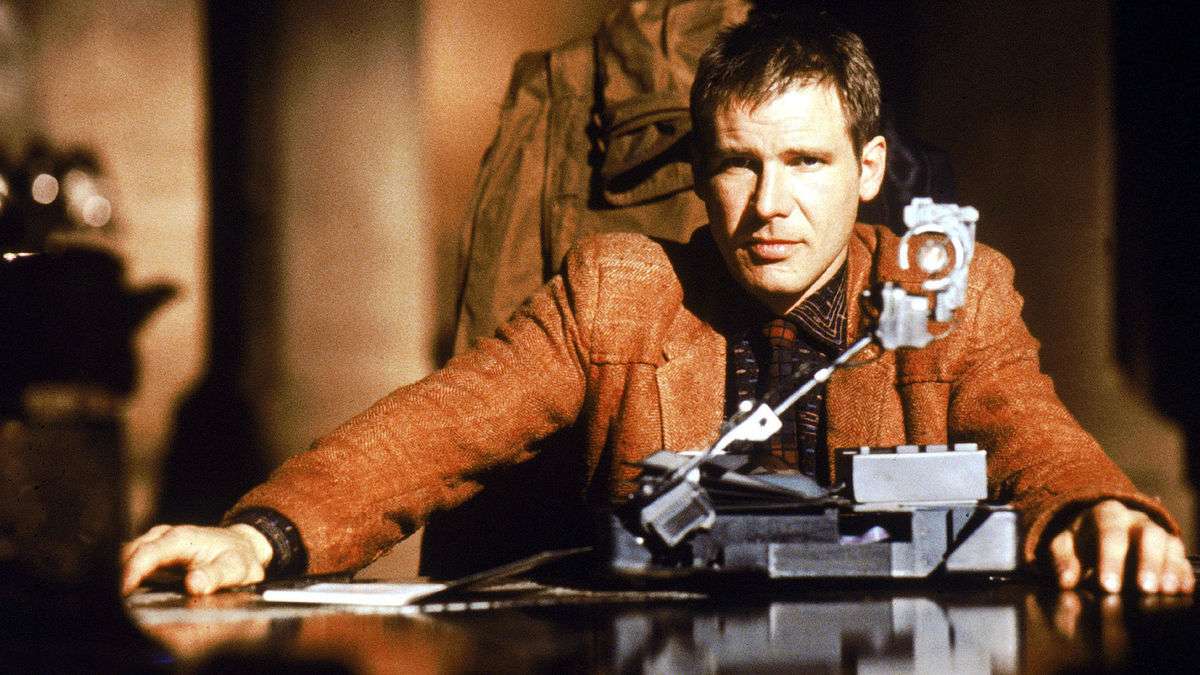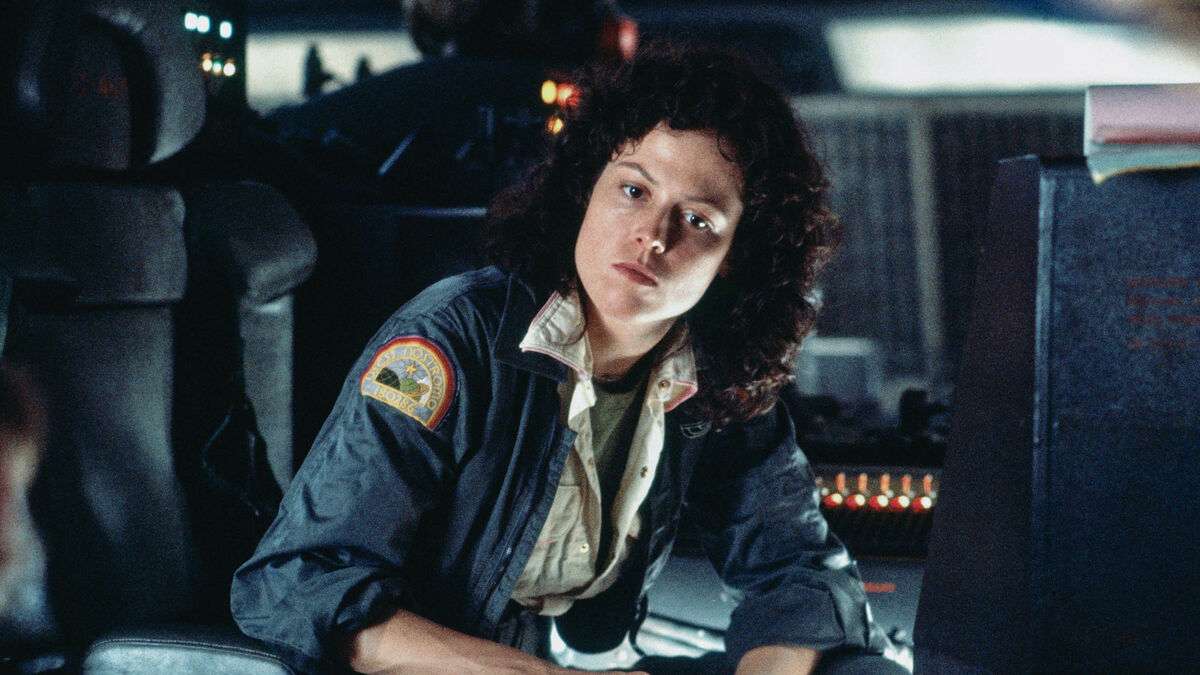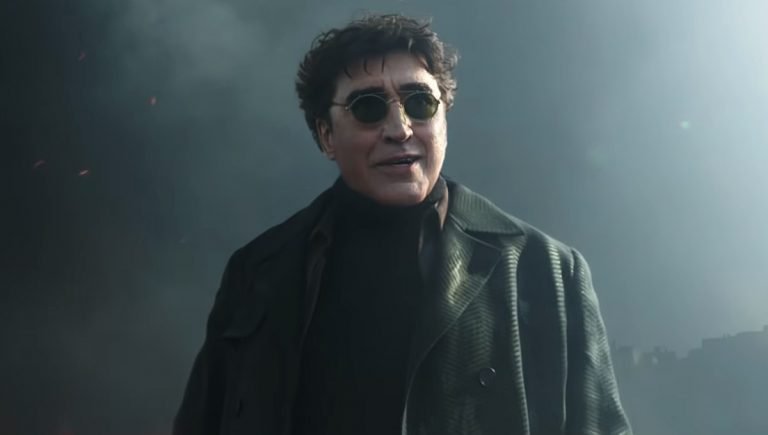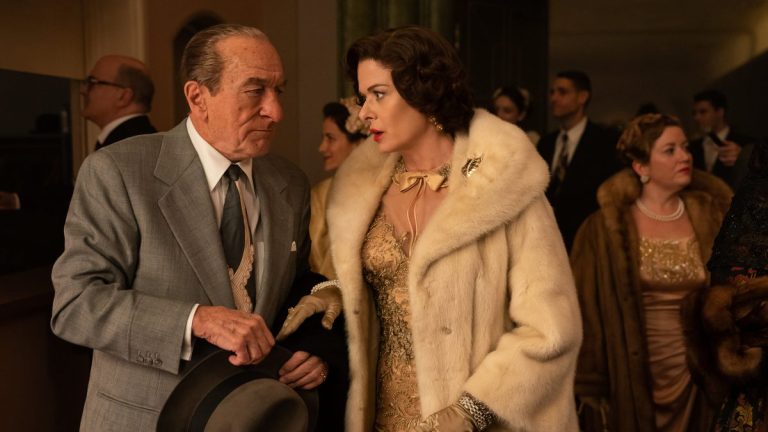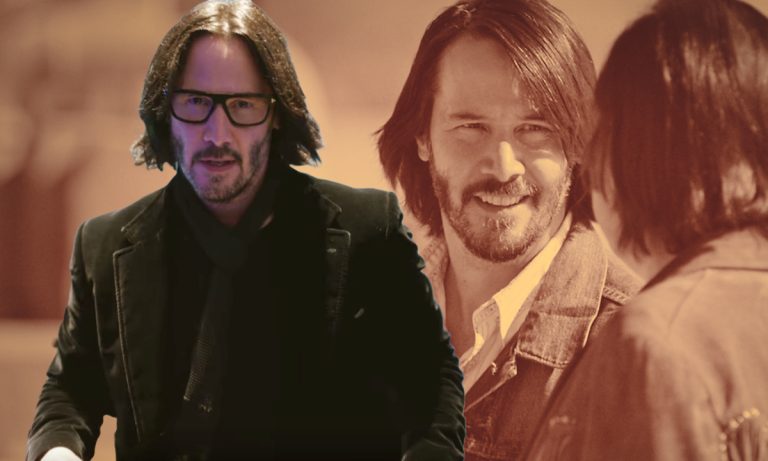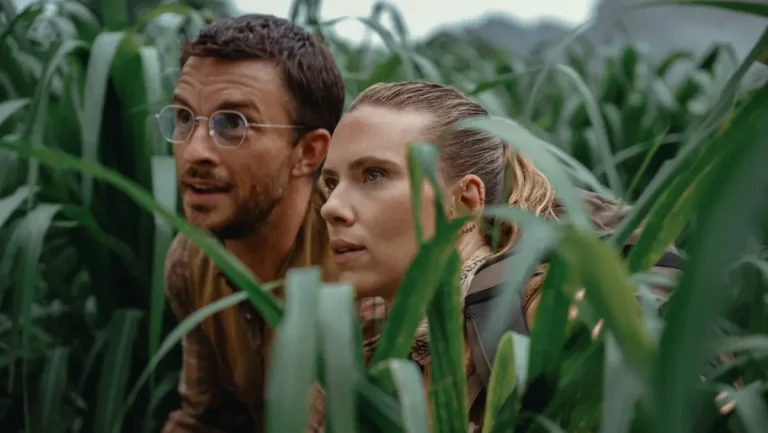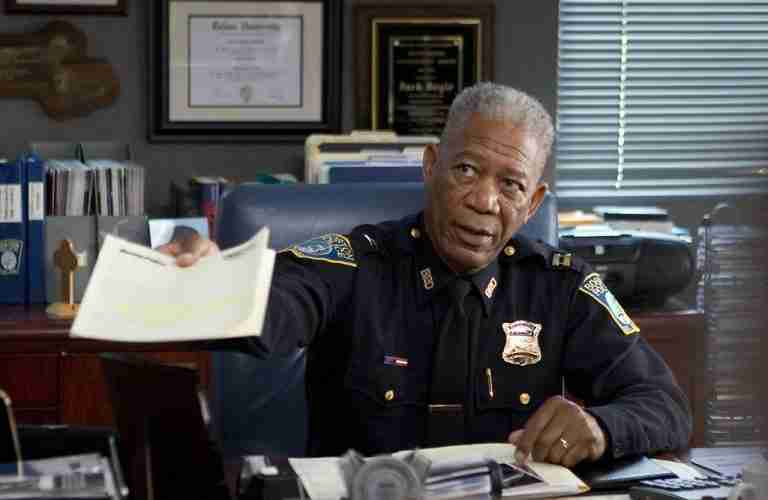Eighty-six years of age, 28 films released, and zero signs of slowing down. If ever one were to quantify a director’s legacy with a numerical value, this would be Ridley Scott’s breakdown, and it’s a pretty impressive one at that. While consistency has never quite been the name of the game for one of Britain’s greatest genre architects, Ridley Scott’s movies nevertheless demonstrate a level of control virtually unheard of for a filmmaker releasing films at his incredible rate; when a year goes by without a minimum of one Ridley film released, questions begin to anxiously swirl regarding the director’s well-being.
Though his overall batting average may not appear to fit the mold of one of cinema’s legendary figures—they say that every time Scott directs a film, the gods flip a coin—his sheer tenacity combined with the bravura technical ambitions of his projects never fails to amaze. On that note, while the octogenarian filmmaker is showing no desire to ease up on the gas pedal, it’s only right to give him his flowers while he can still smell them.
Related Read:10 Best Films of Akira Kurosawa
To rattle off a few honorable mentions before we begin, “Black Hawk Down” earned Scott his third (and so far final) Oscar nomination for directing, thanks to his visceral presentation of the Battle of Mogadishu that showed off great versatility in his gritty presentation. “All the Money in the World” not only features a critically vulnerable performance from the incomparable Michelle Williams but also demonstrates Scott’s madcap willingness to push himself technically by reshooting all of a supporting actor’s scenes (who here shall not be named; you know the story) within two months of the film’s release. Finally, though much maligned at the time, Scott’s admittedly messy but utterly fascinating and ambitious “Prometheus” deserves at least a passing mention for Scott’s playful mythmaking and the sprawling heft of his visuals.
Here are the ten best Ridley Scott films, ranked:
10. Matchstick Men (2003)
From ransom notes to good old-fashioned con jobs, “Matchstick Men” finds Ridley Scott teaming up with everyone’s favorite wild card, Nicolas Cage, alongside everyone’s favorite effortlessly cool everyman, Sam Rockwell. A pairing so flawless it’s a wonder it hasn’t been used before or since, “Matchstick Men” finds Cage and Rockwell bouncing off one another with razor-sharp precision befitting a narrative in which every look, every appearance, is calculated to meet a certain target. A con is only as effective as the ones selling it, and this trio is about as gleefully greasy as you can expect any salesperson to be.
Adapting Eric Garcia’s novel, Scott applies his slick, grounded directing style to maintain the ruse with a crucial sense of conviction; a story like this could fall apart so easily into a convoluted hodgepodge of disinterested swindles, but “Matchstick Men” (match)sticks the landing thanks to Scott’s commitment to keeping characters and their motivations close to the chest. This isn’t to say that the film doesn’t apply a certain flair for flimflam that would leave detesters of the conman sub-genre rolling their eyes until they pop out of their sockets. Still, Scott understands that any good ruse begins with convincing your mark that there’s something worth investing in in the first place.
9. American Gangster (2007)
In his third of many pairings with Russell Crowe, Scott finds his preferred leading man at the mercy of another seismic acting presence, making his Ridley debut: the king of charisma himself, Denzel Washington. Playing on opposite sides of the law, “American Gangster” finds the two towering figures grasping at each other’s throats even though they spend the majority of the film’s screen time entirely apart, only meeting in the final act. This is the power of Scott’s direction, as the urgency of Frank Lucas’s expansive drug trade and the Newark detective’s intent on taking him down comes through in every scene of Steven Zaillian’s biting script.
One of Washington’s greatest gifts as a performer is imbuing any character, regardless of their morality, with a ceaseless allure that pulls you in and compels you to watch for as long as the screen is willing to host them. “American Gangster” fully exemplifies this skill, as Washington commands the lens with a smooth mastery of his surroundings while making it entirely clear that this is a man we should probably be rooting against. Scott gives Washington the room to explore that ambiguous space and mines the results for all their worth.
8. Kingdom of Heaven (2005) [The Director’s Cut]
If there’s one thing Ridley Scott is known for aside from the sheer volume of his catalog, it’s padding out that resumé even further with memorable director’s cuts. A strong proponent of the notion that a film might always be improved with one final glance from the architect, Scott’s many revised versions of some of his most celebrated works tend to overshadow the equally effective revamp of those less celebrated works. In no instance is this more glaring than in Scott’s medieval epic “Kingdom of Heaven.”
The director’s cut of “Kingdom of Heaven” has become almost as legendary as the Crusades themselves, retooling Scott’s once-shabby historical drama into a hefty, engaging tale of complex motivations in an age of rampant, violent expansion. Though lead Orlando Bloom may be somewhat underwhelming as the central force of the film, Scott surrounds his protagonist with an array of memorable faces more than fit for any historical period—from Liam Neeson to Brendan Gleeson to Jeremy Irons.
But all of them pale in comparison to Edward Norton, who communicates more with his voice and his entire body covered head-to-toe than most actors can muster with endless resources. All of these stars come together with great fervor in a recut version of “Kingdom of Heaven,” proving that sometimes (most of the time), it’s worthwhile for studio heads to sit back and let the director simply do what you paid them for in the first place.
7. The Martian (2015)
By the mid-2010s, Scott’s output had begun to noticeably wane in quality; his sharp directorial eye remained intact, but what was clearly clouded was his eye for picking out worthwhile scripts to which that vision should be applied. Enter Drew Goddard, an already up-and-coming screenwriter whose adaptation of Andy Weir’s “The Martian” would prove to be just the spark Scott needed to remind everyone why he’s still in the game. Just as pointedly amusing as it is desolately isolating, The Martian’s script is the perfect marriage of tonal disparities and the perfect marriage of Scott’s fine-tuned style with some more lighthearted material.
Returning Scott to the vast solitude of outer space, “The Martian” finds the director truly proving that the material at his disposal determines the ultimate outcome of his work, for his directing will always be above average no matter what’s on the page. Balancing distant tones and characters across a journey of survival and camaraderie, “The Martian” owes just as much to Scott’s steady hand as it does to Goddard’s cutting words, for a film this wide-reaching requires a guiding hand that understands the value of pacing and the visual communication that comes from the solitude of one man planting potatoes on the infinite redness of Mars.
6. Gladiator (2000)
Among Scott’s more iconic outings is the one that kicked off the new millennium and instantly made him a name to be reckoned with in the dwindling sword-and-sandal epic sub-genre. Working off a commanding (literally) lead performance by Russell Crowe, “Gladiator” has grown to be one of Scott’s most recognizable and quotable films, letting its action scenes and compelling characters echo… in eternity.
If any of Scott’s films are able to coast by purely on the competency of their action sequences, “Gladiator” likely exemplifies this principle most clearly—not because the surrounding quieter moments pale in comparison, but rather because the film’s powerful colosseum sequences reverberate in the minds of viewers precisely due to Scott’s direction. More than anywhere else, “Gladiator” demonstrates the director’s undervalued skill of knowing exactly where to place his camera for maximum investment in any action scene, ensuring that the visuals remain clear and the stakes are noticeable. The prospect of a sequel to “Gladiator” (24 years after the fact, no less) has struck many as an odd choice, not only because of the logistics involved (see the film to understand) but primarily because a return to such beloved material merely acts as a testament to how much this first film stands on its own.
5. The Duellists (1977)
Right out of the gate, Scott demonstrated a fine adeptness for some of the motifs and concepts that would fascinate him across the rest of his career: honor, violent confrontations, a penchant for detailed period settings, and a complete disregard for accents. “The Duellists” would be an impressive debut for any director due to both its expansive structure and its calculated restraint; chronicling a decades-spanning feud between two French generals, Scott is careful to let the historical background of this confrontation fall to the side, allowing the personal rivalry to take hold in bloody fashion.
Though some of the directorial choices reveal “The Duellists” as a clear debut from its auteur—the duels themselves are somewhat choppily executed—Scott nevertheless finds great interpersonal tension between Keith Carradine (no, that isn’t Joel Kinnaman in a time warp) and Harvey Keitel. He explores it with such a deep understanding of the formalities of this period that the rivalry looms persistently over every shot, regardless of how brief the moments shared between these two actually are. (It’s like “American Gangster” if the two leads genuinely hated each other on a visceral level.) Some directors would be happy to have a film like “The Duellists” as a defining peak of their career, but for Scott, this was merely a respectably successful test run for what would come later.
4. Thelma & Louise (1991)
One of Ridley Scott’s few female-centric narratives, “Thelma & Louise,” is also one of his most successful, enduring projects because it proves just how suitable the British director is to tales of genuine companionship and the struggles of a violent life no matter who’s in the lead. With Susan Sarandon and Geena Davis taking those lead roles, however, Scott’s film becomes instantly worthwhile due to the firecracker chemistry of these two friends and the comfort they find in one another as the entire world around them seems to be on their tail.
Though “Thelma & Louise” proves Scott to be fully adept at his thriller narratives regardless of the genders of his leads, it also proves the filmmaker capable of understanding the particularities of women surviving in an inherently misogynistic life, forced on the run for the simple act of self-defense. Calli Khouri’s Oscar-winning screenplay is the catalyst for such a fierce feminist statement, and Scott’s understanding of precisely when and where to sit back and let the ladies take charge is what gives “Thelma & Louise” its lasting impact. A simple look between friends can be enough to break a thousand hearts, but even more so when that look is shared against the edge of a cliff leading to nowhere.
3. The Last Duel (2021)
Quite possibly, Scott’s most overt and powerful feminist statement, “The Last Duel,” came as a surprise (non-)hit of 2021 due to its disarming thematic depth and more expectedly engaging battle scenes. Co-written by Matt Damon and Ben Affleck, the secret to the film’s immensely successful, Rashomon-style narrative device as a commentary on gender roles in medieval times is the film’s third screenwriter, Nicole Holofcener. With each of the three scribes playing to their strengths—humility, and bravado for the first two—Holofcener brings to the page a layered understanding not only of the film’s most critical character but also of the consequences she faces as a victim forced into becoming little more than a symbol of her husband’s honor.
Jodie Comer embodies this role with an extreme vulnerability that complements the urgency of her need to fight, which only feels all the more severe when “The Last Duel” leads up to its namesake. It’s here that Scott’s skills become most apparent in their typical arena. Still, one mustn’t underestimate the importance of his ever-present understanding of pacing and editing, here made all the more crucial upon the divulgence of three separate storylines, each differing in only the slightest of ways. A film whose delicacy is only enhanced by its bludgeoning delivery, “The Last Duel” was clearly in the best hands when Scott got ahold of this dynamic tale.
2. Blade Runner (1982)
First things first, let’s get the controversial part out of the way: Yes, Denis Villeneuve absolutely outdid Ridley Scott in the “Blade Runner” universe. I’m sorry, I don’t make the rules, and “Blade Runner 2049” is about as enriching and thematically complex as this universe could ever hope to be, all while feeling about 30 minutes shorter than the film that’s actually 30 minutes shorter than it. With that being said, there’s no denying that Villeneuve’s magnum opus couldn’t be made without Scott’s predecessor, and not merely because you need an original to make a sequel. Rather, the original “Blade Runner” laid the groundwork for exploring these heady themes of humanity in an increasingly artificial world and the value of mortality that would ripple throughout the science fiction genre for decades to come.
A true marvel of visual effects and production design, the world-building of “Blade Runner” would be enough to shoot it way up on any director’s ranking, but it’s Scott’s thorough commitment to the film’s genre fusion of sci-fi and neo-noir that makes it such a memorable project. One of the defining films of the 1980s—and a testament to the enduring legacy of films even when they underperform financially– “Blade Runner” finds Scott shooting for the stars while his characters remain grounded on an imploding Earth… It’s not difficult to see where the inspiration comes from.
1. Alien (1979)
You know, sometimes the obvious answer is the right answer. Sometimes, you just have to say yes, chocolate is the best ice cream flavor; yes, To Pimp a Butterfly is the best album of the last decade; and yes, “Alien” is Ridley Scott’s best movie. If for no other reason than the fact that it single-handedly reminded audiences of how terrifying space can be in spite of the fact that the vast majority of us will never go there, Scott’s second(!) feature single-handedly redefined the landscape of horror cinema in a potential blockbuster setting.
Cementing the careers of Scott, star Sigourney Weaver, design artist H.R. Giger, and pretty much everyone else involved with the project, “Alien” never betrays the startling intimacy of its horror in the face of its lasting legacy. Instead, Scott’s mastery of the confinement of his setting ensures that every silent moment reads like a deafening cry for help, and every corridor doubles as the playground for the beast that lives inside your head. Only in “Alien” does that beast really reside inside your chest, and it’s very much willing to pop out and leave nothing behind but a trail of blood and the echoes of blood-curdling screams. Entirely unforgettable and startlingly effective, nothing else in Ridley Scott’s career has matched the singular horror of “Alien”—not even Jared Leto’s Italian accent in House of Gucci.

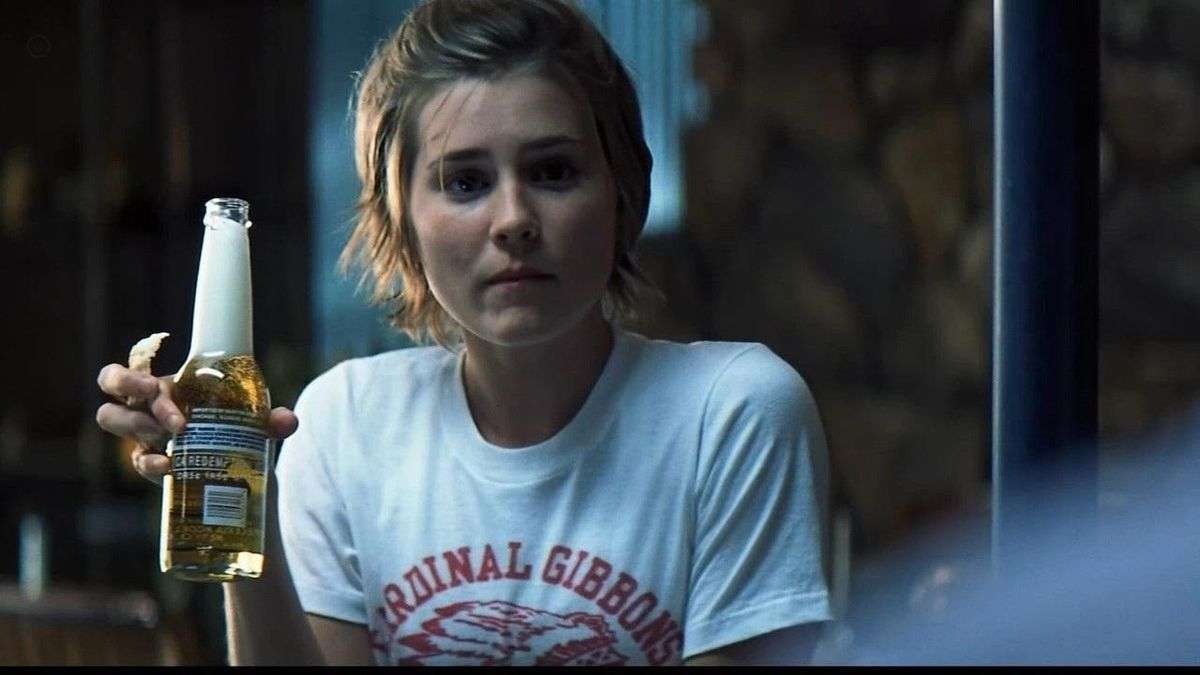
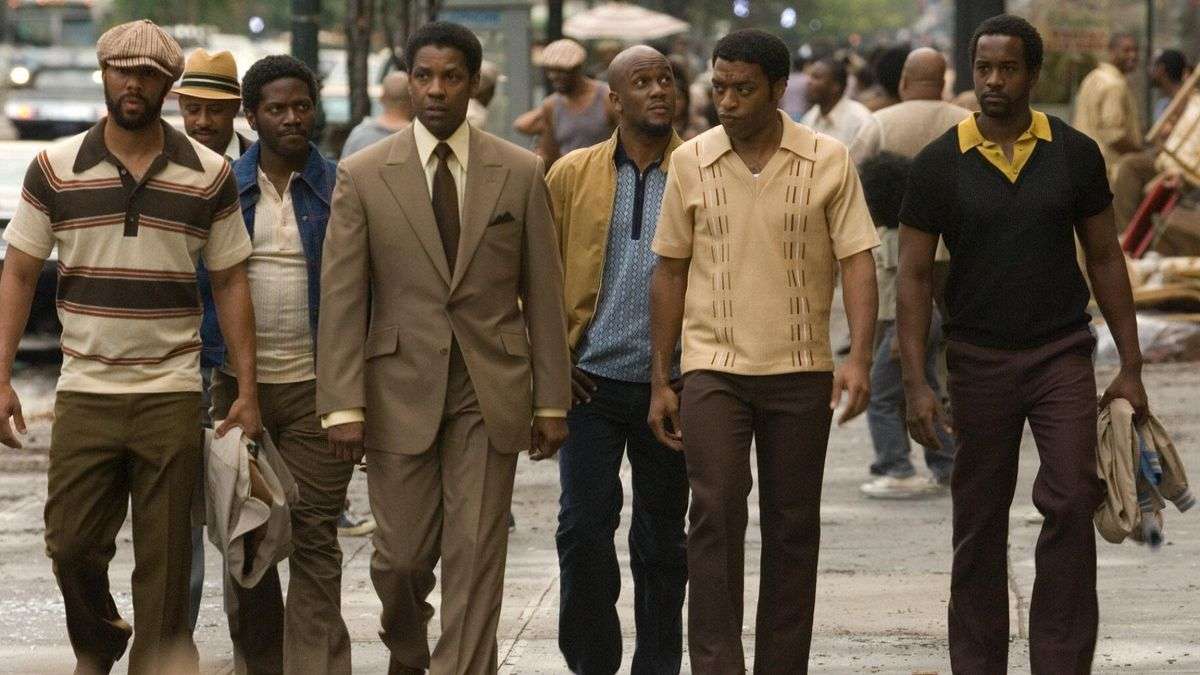
![Kingdom of Heaven (2005) [The Director’s Cut]](https://79468c92.delivery.rocketcdn.me/wp-content/uploads/2024/07/Kingdom-of-Heaven-2005-The-Directors-Cut.jpg)
